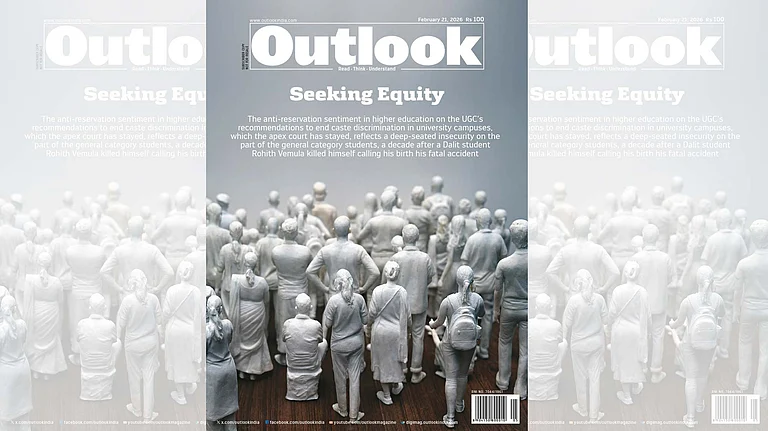Bollywood is replete with superstars—the Rs 100 crore+ powerhouses who roar at the box office with or without talent. And then, there is a minuscule minority of actors who stand out for their versatility and unmistakable passion for the craft. Irrfan Khan belonged to that rare tribe of performers who brought respectability to Hindi movies with performances riveting enough to get acclaim far beyond Indian shores.
Straddling the diametrically opposite worlds of Indian and international cinemas with the ease of a trapeze artist, he deftly switched sides with his ability to make everything he did onscreen look organic. In his demise at 53, not merely Bollywood, but world cinema also has lost a talent who belonged to that rare species of natural actors. He gave his best shot to whatever he did, never discriminating between a Hollywood extravaganza and a low-budget commercial kitsch back home, and stole scenes by default, howsoever minuscule his role might have been.
If Bollywood needed to turn over a new leaf at the turn of a new millennium—the new-age audience was averse to formula films—it found a worthy flag-bearer in Irrfan. With movies like Haasil (2003), Maqbool (2003), Life In A Metro (2007), Paan Singh Tomar (2012), Saheb, Biwi Aur Gangster Returns (2013), The Lunchbox (2013), Haider (2014), Piku (2015), Talvar (2015), Hindi Medium (2017) and his swan song, Angrezi Medium (2020), he helped create a parallel power centre of high-calibre actors, such as Manoj Bajpayee and Nawazuddin Siddiqui, who had been lurking on the fringes before they burst on the scene. Aided by a content revolution ushered in by a new breed of auteurs, from Vishal Bhardwaj to Tigmanshu Dhulia, they helped Bollywood inhale fresh air with their refined sense and sensibility as actors par excellence.
What set Irrfan apart from his peers was the way he made an impact at the global level. Even though he had bagged a small role in Mira Nair’s Salaam Bombay! (1988) early in his career, he arrived on the international scene many years later with The Namesake (2007), A Mighty Heart (2007), Slumdog Millionaire (2008) and of course, Life of Pi (2012). With Hollywood biggies The Amazing Spider-Man (2012) and Jurassic World (2015), he shrugged off the tag of crossover Asian actor, arguably emerging bigger than any of his predecessors or contemporaries from the subcontinent who had tried their luck in Hollywood.
Nonetheless, success did not come to him on a platter. Beneath his stardom lay years of relentless toil. Even though he graduated from the National School of Drama, good opportunities eluded him for long. In the 1990s, the parallel cinema movement spearheaded by Shyam Benegal, Saeed Mirza and others of their ilk had run out of steam, while commercial movies had no place for an unconventional-looking actor like him. Bollywood was completely under the sway of mushy, romantic musicals back then and an actor like Irrfan, barring an occasional Ek Doctor Ki Maut (1990), hardly found anything of substance in that la-la land. He turned to television to keep the actor alive in him and made the most of his limited opportunities with serials like Chankaya (1992) and Chandrakanta (1994). However, anyone who could fathom the depth of his talent knew that he was destined for bigger things. He finally ‘arrived’ in the new millennium, when the audience began to get tired of bubblegum romances and mindless action flicks, and yearned for stories rooted in real life. Irrfan rose to the occasion, never to look back again.
In retrospect, regardless of his awesome repertoire, he still had a lot more in him than what he could give to the audience and the industry in his lifetime. It is a monumental loss that he was nowhere near his peak when he chose to call his final pack-up in life. It was no time to go, man!


























